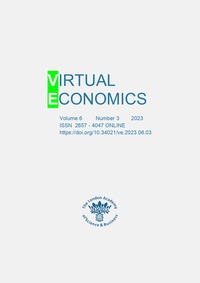Digitalisation, Gender, and Career Intentions: Knowledge Mapping
Digitalisation, Gender, and Career Intentions: Knowledge Mapping
Author(s): Mavis Mensah SenyahSubject(s): Gender Studies, Social differentiation, Human Resources in Economy, ICT Information and Communications Technologies
Published by: The London Academy of Science and Business
Keywords: career; decision making; training; gender; career intentions; digitalisation; technology; digital divide; employment; gender equality; social media;
Summary/Abstract: The study aims to investigate the relationship between digitalisation, gender stereotypes, and digital skills on gender discrepancies in career intentions. The study uses the VOS viewer tool to present data from the Scopus database and perform analyses on gender and career intention and science mapping. Harzing’s Publish or Perish software is used to analyse the performance of publications involving digitalisation, gender, and career intentions. The study uses the VOS viewer tool to present data from the Scopus database and perform analyses on gender and career intention and science mapping. The study shows that in about two decades of the emergence of interest in publications around digitalisation, career intentions, and gender, about two hundred publications have been produced. An annual growth rate of 8.5; 1596 citations emerged from these publications with a yearly average of 72.55. The results showed a persistent increase in research by nations, authors, funding organizations, etc., with the US emerging as the nation with the highest research output. The study concludes that there is a persistent increase in research on digitalisation, gender, and career intentions. The US has the highest research output in this area. The study highlights the need for more research in this area to address gender discrepancies in career intentions. The study also suggests that policymakers should focus on providing equal opportunities for women to access digital skills and education to bridge the digital gender divide.
Journal: Virtual Economics
- Issue Year: 6/2023
- Issue No: 3
- Page Range: 38-55
- Page Count: 18
- Language: English

